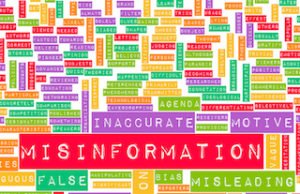The financial services trade press is full of stories about life and health insurance agents and investment advisors who failed to say no.
Case in point: John Paul Slawinski, who in 2014 went to jail for nine years and was ordered to pay $3.4 million in restitution. According to the California Department of Insurance, his crime was stealing from senior citizens by convincing them to swap their existing annuities for “better deals.” Problem was, he just pocketed the money and covered his tracks by sending his clients phony statements. He also sent them nominal payments, suggesting the “investments” were generating returns.
Then there’s the well-known case of Mark Spangler, an investment advisor and former chairman of the National Association of Personal Financial Advisors (NAPFA). He was convicted and sentenced to 16 years in prison for swindling his clients, many of whom were personal friends and family members, out of $18 to $20 million. His scam? Selling them fake investments and then diverting their money into two of his own start-up ventures. He then covered up his crime with classic Ponzi techniques and used client money to indulge his passion for boats.
And let’s not forget the story of Mark Hotton, a securities broker who over a 4-year period generated some $10 million in fines and arbitration settlements for the securities firm Oppenheimer. Hotton was a serial transgressor, breaching his contract, churning accounts, making unsuitable sales, and engaging in other serious violations. After FINRA barred him from the industry, Hotton went on to commit wire fraud in connection with efforts to secure financial backers for a Broadway play.
What do you make of these accounts? Do you chalk them up to financial-advisor greed and lack of ethics? Are the perpetrators just bad people lacking in conscience or good character? Psychologists say the answer is subtler than that. A variety of studies suggest that financial scammers — well, criminals of many types — don’t manage temptation well and don’t fully understand the implications of succumbing to it. They don’t think about the form in which temptation might arrive, how compelling it might be, and whether they’re up to resisting it. So when temptation finally hits, they are caught off guard and easily succumb.
Anticipating temptation
A study conducted by Ayelet Fishbach, Professor of Behavioral Science and Marketing at the University of Chicago, and Oliver J. Sheldon, Assistant Professor of Management and Global Business, at Rutgers University, sheds light on this phenomenon. The professors found that people who anticipated a temptation to act unethically were actually less prone to act improperly than those who didn’t anticipate the temptation. How’d they reach this conclusion? By conducting an experiment with 196 business-school students that simulated negotiations for the sale of historic homes. Before the experiment, half of the subjects were asked to write about a time when they were tempted to break a rule and benefited from it. The half in the control group just wrote about a time when having a back-up plan was useful.
Then the students were divided into pairs, with one playing the role of the seller of the property and the other, the buyer. In the experiment, sellers were instructed not to close the deal with anyone who’d raze the property for new development. The buyers were told their client was planning to raze the property to erect a high-rise hotel, but to hide that information from the seller. Result: 67% of the control-group buyers (those that hadn’t anticipated temptation) lied about the hotel plans in order to close the deal. But only 45% in the group that had anticipated temptation lied to the property seller.
Takeaway? “Unethical behavior may not be experienced as something that needs to be resisted if people think it’s socially acceptable or does not reflect on their moral self-image,” Professor Sheldon says. “People often compartmentalize their experiences of temptation, making it much easier for them to rationalize the behavior. They might say, ‘Just because I took office supplies home for personal use one time… doesn’t mean I’m a thief.” He suggests that anticipating temptation might lead more people to square their unethical conduct with their moral self-image. A bit of reflection goes a long way toward putting temptations in the right context and increasing the likelihood that advisors can avoid them.
How might one apply this concept to financial services? Think about the ethical moments of truth in your relationships with prospects and clients. A perfect example is the point at which you “frame” the key problem to solve during implementation. The temptation is to focus on a problem that leads to a more profitable sale rather than a one that delivers more client value, but with less advisor compensation. Thinking about this conflict ahead of time might “prime” you to make the correct recommendation, knowing that ultimately if you do a good job for a client, future opportunities will arise to make even more money.
Anticipating pride vs. dwelling on shame
Deborah MacInnis, a professor of business administration at the University of Southern California (USC), has a different take on the temptation issue. She says that the traditional approach to understanding temptation is to view it as the struggle between unruly, selfish passions, which are fueled by pleasure, and dutiful, obedient impulses, which result from a sense of shame. In reality, her research suggests that ethical behavior often results from anticipating pride rather than dwelling on shame. Here’s why she believes this.
MacInnis and two USC colleagues designed a study in which they tested how three groups of students reacted to a sweet temptation. They placed the students in a room with a large piece of chocolate cake, utensils, and water. They were asked to eat as much (or little) of the cake as they desired. But each group received different instructions. The first was asked to think about how proud they’d feel if they ate little or none of the cake. The second was asked to imagine the shame of eating too much cake. And the third was simply let loose to eat with no prompting at all. Results? Students who anticipated pride ate far less cake than those who contemplated the shame of giving in to temptation. They also ate less than the control group who received no direction.
According to MacInnis, the reason anticipating pride works better than anticipating shame is that “pride focuses attention on the self (not the cake) and on success rather than failure. Shame, on the other hand, emphasizes the opposite; it focuses attention on the object of desire and the act of succumbing, making resistance harder to pull off. Simply put, anticipating pride makes us feel good and anticipating shame make us feel bad.”
From the perspective of a life insurance agent, registered investment advisor, or securities broker, it’s important to envision the positive feelings you’ll have when you do what’s right, not the feelings of shame when you take advantage of someone. According to research, the positive feelings will make it much easier to resist unethical actions than the negative feelings produced by shame. For example, when considering the option of either selling a low-commission version of a product or a higher-commission option, don’t focus on how awful it will be if the client finds out you sold a lower-quality product to maximize your compensation. Instead, think about how great you’ll feel when you sell the less-expensive policy because it serves the client’s needs better. Doing the latter will make it much easier to resist the unethical option, research suggests.
“I can’t” vs. “I don’t”
A final study sheds light on the impact of word choice on a person’s ability to resist temptation. A study in the Journal of Consumer search found that saying to oneself, “I can’t do X” vs. “I don’t do X” has a big impact on whether one is ultimately successful at resisting temptation.
This finding comes from a study of 120 college students split into two groups. The first was asked to respond to temptation by telling themselves, “I can’t do this.” The second was asked to respond by saying “I don’t do this.” After receiving these instructions, the students completed a questionnaire unrelated to the purpose of the study. As they walked out of the room and dropped off their answer sheets, they were offered either a granola bar or a chocolate bar. The researcher recorded which choice they made. Result? The “I can’t” students ate the candy bar 61% of the time, while the “I don’t” ate the candy only 36% of the time.
Why is word choice so important? Telling yourself “I can’t” in response to a temptation reminds you that you aren’t in full control of your behavior. You’re resisting temptation because some external rule or entity is forcing you to, which is unsatisfying. However, when you say, “I don’t,” you’re reminding yourself that you are empowered to make the correct choice. This is a great feeling, which can help propel you toward the right decision.
This is an important distinction for financial advisors who every day make suitability decisions that might enrich themselves at the expense of their clients. In this case, the “I can’t” response reflects the proscriptions of regulators and compliance officers. It’s a decision imposed from without that frankly never feels positive or motivating. However, the “I don’t” reaction comes from inside, reflecting the advisor’s sense of right and wrong and responsibility to the client. This feeling is inherently more positive, rewarding, and compelling. So when pondering an ethical dilemma, take more guidance from your ethical values than from your compliance officer’s prohibitions. The latter are important, of course, but the former will give you a lot more leverage against unethical choices.
3 ways to resist temptation
Based on the studies just discussed, how might you enhance your ability to resist temptations in your dealings with clients? Here are three ideas to implement in your daily work:
- Think proactively about future temptation. In other words, understand where those temptations will come from, how strong they might be, and how you can marshal opposition to them.
- Think less about the negative consequences of unethical conduct (regulatory sanctions, client complaints, errors-and-omissions insurance claims). Instead, think more about how great you’ll feel inside after having done the right thing for your clients.
- Don’t look to outside forces to compel your own ethical conduct. Rather, look inside to your own ethical values to guide your actions and decisions.
Because when all is said and done, being an ethical financial advisor isn’t about banishing temptations entirely from your working life. It’s about knowing how to respond when they inevitably call out to you in all their chocolate-covered goodness.
Harry J. Lew is Chief Content Officer of the National Ethics Association. For information on affordable errors and omissions insurance for low-risk financial advisors, visit E&OforLess.com. For information on ethical sales practices, please visit the National Ethics Association’s Ethics Center.














If we school ourselves to focus on the customer at all times, instead of our compensation, the temptation to do wrong will rarely raise its head. A “What’s in it for me?” will more often then not result in unethical behavior.
I don’t do that.